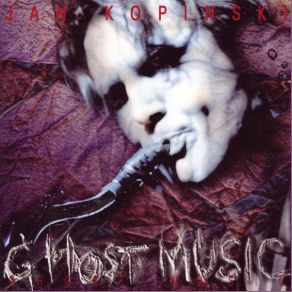Ghost Music
Download links and information about Ghost Music by Jan Kopinski. This album was released in 1997 and it belongs to Jazz genres. It contains 11 tracks with total duration of 01:03:37 minutes.

|
|
|---|---|
| Artist: | Jan Kopinski |
| Release date: | 1997 |
| Genre: | Jazz |
| Tracks: | 11 |
| Duration: | 01:03:37 |
| Buy it NOW at: | |
| Buy on iTunes $9.99 | |
Tracks
[Edit]| No. | Title | Length |
|---|---|---|
| 1. | Cemetery | 8:08 |
| 2. | House | 4:03 |
| 3. | Spaghetti Traffic | 3:57 |
| 4. | Slow Zawsze | 4:23 |
| 5. | Station | 3:31 |
| 6. | Pool of Bells | 4:57 |
| 7. | Egg Ceremony | 8:57 |
| 8. | Roundfield | 8:03 |
| 9. | Spook | 5:38 |
| 10. | Station East | 8:05 |
| 11. | Marble Day Dream | 3:55 |
Details
[Edit]Electricity has had an up and down relationship with jazz. When Miles Davis started plugging in back in late '60s, the immediate reaction was mixed. Some loved it, some hated it. In listening to records like Bitches Brew at the remove of several decades, listeners are struck by the avant-garde intent behind the music. That stuff was darned near as out as Ornette, and every bit as creative as anything being done in jazz at the time. Of course, Davis ceased being avant-garde after a certain point, but it wasn't the synths and electric basses that did it. It was Davis' intent that ultimately changed; eventually, he decided he wanted to be richer than God, so his music became progressively more commercial. Electronic instruments never forced anyone to play bad music. Jan Kopinski's music draws upon current technology in some interesting ways; when it succeeds, it's because of the inspiration and intellect involved. When it occasionally fails, it's not because he's selling out, but because his imagination or chops or good taste lets him down. That doesn't happen too often on this one. Kopinski shows an experimental spirit and a well-developed musicianship. His sense of adventure lets him do things like overdub several saxes (all played by him) improvising simultaneously, or employ unusual electronically generated timbres — processed bells and keyboards, for instance. He even alters his sax sound electronically. While Kopinski relies on drum machines and/or sampled percussion, he doesn't use them in a clichéd, four-to-the-floor house music fashion; instead, he takes pains to use them in original or unorthodox ways. He's a fine tenor player, with a large expressive tone and a quavering, moment-to-moment air of vulnerability about him. His melodies are simple and to the point. His harmonies are simple, as well, but not his harmonic concept; he uses pedal points or ostinati as anchors, then flies in and out, up and over them. The music is, in general, fairly introspective, though Kopinski does light some fires as a soloist. The record isn't perfect; it's good, not spectacular. Most significantly, Kopinski is making music of his time. He's using technology to explore the limits of his creativity — combining it with the traditional in an honest attempt to break some new ground. That's not something to be taken lightly.